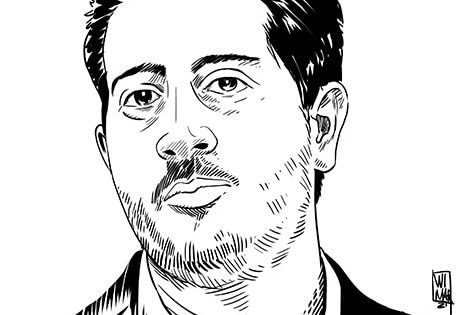Press reports indicate that Héctor Maseda Gutiérrez had balked at the government's offer to be released on parole, asking instead for a pardon.
(CPJ/IFEX) – New York, February 14, 2011 – The Committee to Protect Journalists called on Cuban authorities today to place no conditions on the release of journalist Héctor Maseda Gutiérrez, who was freed on parole Saturday. Maseda Gutiérrez is a founding member of the independent news agency Grupo de Trabajo Decoro and a winner of CPJ’s International Press Freedom Award in 2008.
In a brief notice posted on its website Friday, the church said Maseda Gutiérrez, 67, and dissident Eduardo Díaz Fleitas would be allowed to remain in Cuba under a form of parole known as an “extrajudicial license.” But press reports indicated that Maseda Gutiérrez had balked at the government’s offer to be released on parole, asking instead for a pardon. He also called for ailing dissidents to be immediately released.
In a video interview published on the news website DiarioVasco from his home in central Havana on Saturday, Maseda Gutiérrez told reporters: “I was obliged to leave prison against my will. I never accepted how they released me, under special ‘extrajudicial license’. I never accepted that.” On Sunday, the reporter joined the Damas en Blanco, or Ladies in White, a group formed by the wives of detainees to call attention to their plight, in their weekly demonstration, local and international press reported.
“We call for Hector Maseda Gutiérrez’s unconditional release and the removal of the ‘extrajudicial license’ for his freedom to be complete,” CPJ Deputy Director Robert Mahoney said. “We also call for the unconditional release of all Cuban journalists in compliance with the Cuban government’s July agreement.”
Maseda Gutiérrez was freed after nearly eight years in jail as part of a July 7, 2010, agreement brokered by the Catholic Church for Cuban authorities to release the remaining 52 detainees rounded up in what is known as the Black Spring of 2003 “within three to four months,” the church said in a statement issued that day. He is the first journalist of the Black Spring detainees to be permitted to remain in Cuba. Seventeen other reporters released were flown immediately to Spain. (One has relocated to Chile and two have relocated to the U.S.).
Maseda Gutiérrez had been serving a 20-year sentence following his arrest during the massive crackdown on dissidents and the independent press in March 2003. In a closed-door summary trial he was charged under Article 91 of the Cuban penal code for acting “against the independence or the territorial integrity of the state” and Law 88 for the Protection of Cuba’s National Independence and Economy. His wife, Laura Pollán, said her husband suffered from high blood pressure and skin ailments while behind bars.
With Maseda Gutiérrez’s release, three journalists remain imprisoned in Cuba. Pedro Argüelles Morán and Iván Hernández Carrillo are among a handful of remaining detainees from the 2003 crackdown who expressed their desire to stay in Cuba upon release, according to the reporters’ families. The third journalist, Albert Santiago Du Bouchet Hernández, was imprisoned in April 2009.
Last Wednesday, CPJ wrote a letter to Spanish President José Luis Rodríguez Zapatero calling for the Spanish government to push Cuban authorities to fulfill their promise to free all journalists held since the 2003 crackdown. Argüelles Morán and Du Bouchet Hernández reportedly went on hunger strike last week to call attention to their continued incarceration and that of other political prisoners.


